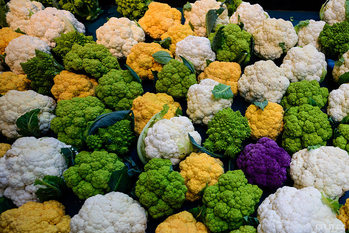The Importance of Diet

When we consider all of the things that influence our health like heredity, stress, environment, exercise, etc., there is no one thing that has a greater impact on us than what we eat. This fact is something that ancient cultures intuitively knew and that modem science is beginning to rediscover. One cannot pick-up a newspaper, magazine or surf the web these days without seeing an article about research demonstrating the way in which certain foods or their constituents impact our health.
The reason that food is so important is because it is the source of our daily energy. Together with sleeping, it is how our bodies restore, make the fuel that we need to get through the day, deal with stress, and fight off disease and inflammation. The ingestion of food is an activity that we engage in several times a day, 365 days a year for our entire lives. For this reason it’s easy to see what a tremendous impact food has on us. While pharmaceuticals and herbal products may have more potent short-term effects, the potency of food lies in its repetition and unlike drugs, a healthy diet has no negative side effects.
As the saying goes, “You are what you eat!” So choose wisely. The following are general principles for healthy eating. Don’t forget, it is nearly as important how you eat as what you eat.
Eat whole, local and ororganic foods: Whole foods are not as processed and are sold closer to how they are found in nature. Processed foods are stripped of nutrients during processing and disease causing agents may be formed. Organics are not genetically modified, and have no pesticide or herbicide residues. Local foods are often fresher, more nutritious and support local farmers.
Vegetarian, whole food diets are best: Research has proven that a vegetarian diet that is free of animal products (dairy, meat and eggs) and that is low in fat is the healthiest choice. Chronic diseases such as diabetes, heart disease, cancer, high blood pressure and high cholesterol can all be controlled, reversed and eliminated with strict adherence to this type of diet.
Eat according to your energetics: Every person has a different ancestral background, genetics and body energetics. Food that is good for some is not necessarily good for others. Learn what foods your body needs and which foods that it doesn’t. See recommended reading for book titles that educate about individual energetics.
Take time to eat your food: Don’t rush! Take time to eat in a peaceful environment. Don’t eat on the run or skip meals just because you are too busy.

Chew your food: Digestion begins in your mouth. Your stomach has no teeth. It relies on your mouth to break food down and increase it’s surface area so that digestive juices can extract the nutrients that your body needs. Not chewing also inhibits good digestion because essential enzymes in saliva can not interact with carbohydrates if they are not chewed well.
Don’t drink liquids with meals: Slowly reduce the amount of liquid you consume with meals until you don’t need any. Stomach acid becomes diluted by too much liquid and digestion is incomplete. The more that you “wash things down”, the less saliva (a necessary digestive juice) will be produced. The more that you chew your food, the more moisture is created in your mouth.
Make breakfast and lunch your biggest meals: Besides providing you with the necessary energy for the day, your body is energetically ready to eat and digest in the morning and afternoon. Avoid eating big meals at night and don’t eat within two hours of bed.
Reduce and then eliminate the amount of animal products that you consume: Animal products are harder to digest, contain more saturated fat and may contain higher concentrations of toxins than non-animal based foods. Additionally, research has shown that the consumption of animal products is linked to chronic diseases such as diabetes, cardio-vascular disease and cancer. If you must have animal sources of protein, keep in mind the following: four ounces of animal protein per day is adequate for most peoples needs. Organic, free-range, grass-fed sources are the most healthy. Choose lean sources of red meat like buffalo or elk, poultry, or deep ocean cold-water fish.
Be kind to yourself when making these changes. It takes time to develop habits and even more time to break old ones. Your pursuit of health is a life long journey, so you have plenty of time. Set realistic goals and make changes a little bit at a time. The most important thing is that you educate yourself about diet and your own body. These recommendations may seem simple and a bit obscure, but they are time tested principles to good health and well-being.
RESOURCES:
Traditional Chinese Dietary Medicine
BLOG:
